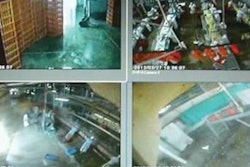USPOULTRY and the USPOULTRY Foundation announce the completion of a funded research project at the University of Arkansas in Fayetteville, Ark., in which a researcher developed a rapid detection assay for Salmonella that can be used in poultry processing plants. The project is part of the Association’s comprehensive research program encompassing all phases of poultry and egg production and processing. A brief summary of the completed project is shown below. A complete report, along with information on other Association research, may be obtained by going to USPOULTRY’s website, www.uspoultry.org. The project summary is as follows:
Project #F056: Rapid Detection of Viable Salmonella on Poultry Carcasses without Enrichment Using Multiplex PCR and Quantitative PCR (qPCR)
(Dr. Steven Ricke and collaborator, Si Hong Park, University of Arkansans, Center for Food Safety – Institute of Food Science and Engineering, Fayetteville, Ark.)
Dr. Steven Ricke, University of Arkansas, recently completed research in the development a rapid detection assay for Salmonella that can be used in poultry processing plants. The method will allow the detection of all Salmonella strains as well as identify S. enteritidis, S. Heidelberg, and S. typhimurium. The assay also reduces cost and testing time compared to some currently used methods. The testing method could be adapted to detect Salmonella in various stages of processing, providing important information for improving control measures. For a detailed summary, click here.

















